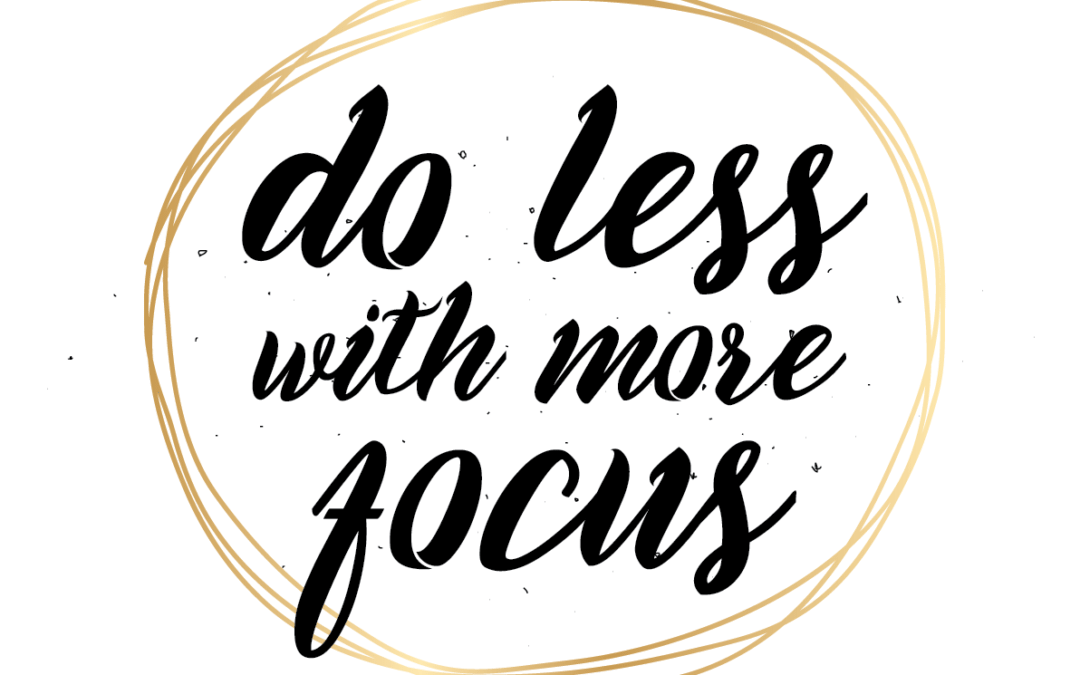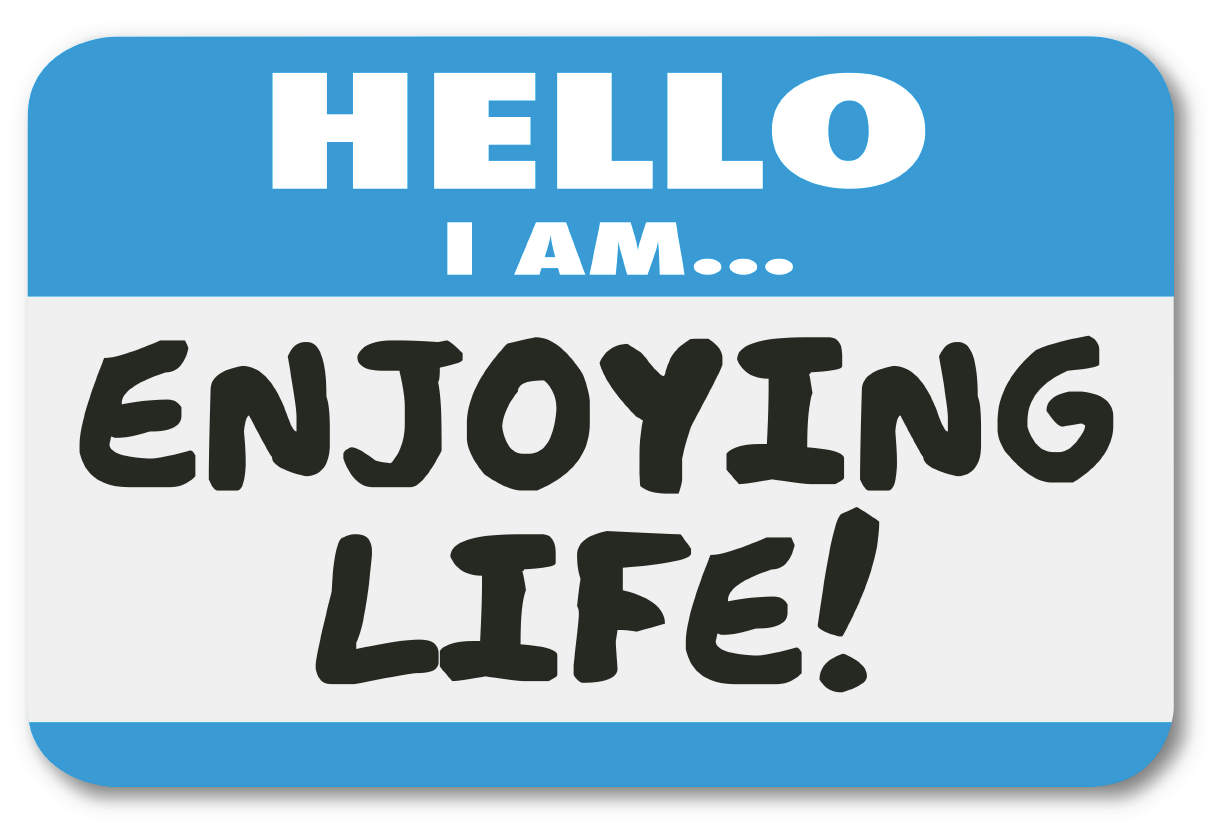We The Box-Checkers: Part II
Between A Box & A Hard Place
Part I introduced the idea that we are far too busy. We are busier than we should be or need to be in order to attain the success we seek. In fact, our busyness consumes precious energy that should be reserved for higher priorities – family, friends, experiences, even a good night’s sleep. Our reasons underlying our schedule are important, to be sure – get into grad school, find a good job, earn a promotion, experience a quality lifestyle. Our argument for doing too much is defensible – these high goals are tough to achieve without a solid resume, good grades, hard work, diverse personal and professional skills, and critical connections. I am not here to throw stones at your goals.
The problem with this approach, however, is that it’s exhausting and need not be. We place ourselves in a race with our peers and colleagues to check off as many boxes as fast as we can. We don’t really know how much they are accomplishing, so we run harder and faster. Our race quickly becomes an all-out sprint with more and more boxes to check. Exhaustingly, more boxes appear just as others are marked-off. Here, we figuratively find ourselves between a box and a hard place. Witty, huh?
Perplexingly, the results of our sprint are often disappointing. We tend to do most of these tasks relatively poorly (there just isn’t enough time) and with less than a happy heart (who wants to move through a life – a life you only get to do once – this fast). We seek success, but success need not be obtained this way. There is a better method to arrive at the same place. It all begins with this advice: Do less by focusing more. In other words, check fewer, but more meaningful, boxes. I will show you how!
Focus Primarily On The Meaningful Boxes On Your Path
There are many different kinds of boxes we check in life. For students they include: grades, prerequisites, majors, minors, certificates, extracurriculars, networking, internships, study abroad, family, friends, etc. For those in the working-world they include: daily job tasks, important job projects, work committees, networking, professional development, bills, taxes, family obligations, friends, home maintenance, volunteer work, etc.
The key to navigating this tightrope is to remember three things: (1) not all of these boxes are the same size, (2) very few hold the same level of significance, and (3) though there are many to choose from, you need not choose as many as you think. So, what if we could check far fewer boxes more meaningfully, get the same results, and leave time for our biggest boxes (the people we love)? That sounds like something I would be willing to try immediately.
Let’s simplify the concept here using two very similar (hypothetical) students with very similar goals but very different approaches to life. This exercise will put my advice into proper perspective.
Hypothetical Student #1 – Justin
Justin is extremely motivated to make something of his life. He works tirelessly towards his goal of being an Intellectual Property attorney. The problem is that he has bought completely in to the box-checking approach to life. So, he overloads on courses; he has two majors and two minors. There isn’t time to care too much about the material from these various subjects, the A’s are what matter. He reasons that law schools will love a student with majors in Biology and Business as well as minors in Political Science and History. He is a member of five student groups and the president of two. He is active in his fraternity but counts that as a separate activity. He goes to all the networking conferences the Career Services office puts on and works during the school year (20 hours a week) at a small Family Law firm. It’s not the area of law he wants to enter, but it looks like a legal internship on his resume. He loves his family and makes some effort to see them on some weekends. But, these visits are fewer than he (or they) desire.
To make all this happen he has to jump from task to task as quickly as possible. So, he packs up and bolts right after every class. There is no time to hob-nob with his professors. In the end, he’s too busy to go to office hours or form any meaningful relationships. He would if only he had more time. Justin attends as many extracurricular meetings as he can, but the meeting times often conflict. To be honest, he is not sure what’s happening with each group at any moment in time because he can’t focus on that right now. The groups he leads tend to tread water under his guidance. Other group members cannot really steer the ship either because they are just as busy. Justin’s work schedule often conflicts with his class projects as well as the outside events he would like to attend. Unfortunately, there are plenty of speakers on campus that he would love to hear, but he has to study. Justin knows that grades matter when applying to law school. Then there are the LSAT prep classes. He has heard that these are a must. But, lacking time and money to put into a reputable program, he decides to get a few books from the library and teach himself in his free time.
There is a major problem, though – Justin is exhausted. He can barely find time to get a good night’s sleep. He is trying to check at least a dozen boxes on a weekly basis and his priorities are all out of whack. Keep in mind that this is all based on a belief that these gargantuan efforts will get him into a good law school which will then get him his prestigious first job as a patent attorney. Then . . . everything else in life will fall into place. As I mentioned earlier, this is certainly a defensible position. There is little doubt that the path to law school for most is littered with all these boxes. Justin’s approach can work. But, let’s see if there is a better, more efficient way.
Hypothetical Student #1 – Renee
Renee is just as motivated as Justin to make something of her life. For the sake of simplicity, let’s assume that she desires to be a patent lawyer at a nationally-known firm as well. Like Justin, Renee has the motivation and brain-power to work tirelessly at this goal. But, she looks at life a bit differently. Her priorities line up like Justin’s with family, school, friends, career, and health all on the list. But, her mind won’t let her sacrifice three of those for the sake of two others. She believes she can attain them all in the order her heart desires.
So, Renee takes some uninterrupted time to evaluate her boxes before jumping in. She knows how hard it is to get into law school, so she looks at the requirements. The process really involves five components: (1) LSAT scores, (2) grades, (3) a few letters of recommendation, (4) a few student experiences, and (5) a personal statement – in that order of importance. So, she looks for meaningful boxes that cover that ground. The first thing she does is evaluate LSAT preparation courses. She sees that these classes cost $2,000 and so she works the summer before at an intellectual property boutique firm as a low-level staff assistant to accumulate enough money. This was hard work, but she did it during the summer to avoid class conflicts. She was also diligent to make sure she had at least $2,000 in the bank by the time the school year rolled around so she wouldn’t have to work the twenty hours a week that Justin works.
Key Facts: this summer internship was a more meaningful box to check that Justin’s work at the family law firm because Renee’s work was intellectual property-related, occurred over the summer, and provided cash to check another meaningful box (the LSAT prep course). Renee got the resume bump in addition to gaining some experience and a head start on checking other key boxes with less stress.
When the school year came, Renee did not need to work as much so she could focus on her classes and a few extracurricular activities. She only had one major and one minor so, in class, she had time to plug into the material and, more importantly, develop strong relationships with a few professors. These professors admired her work ethic and the fact that she hung around to chat about the material when others just left. She was at the outside speaker events and in office hours a few times a month.
Key Facts: Renee’s caring about the material as opposed to her grade approach to school is refreshing. It is also a meaningful box to check because it leads to better grades and student-faculty relationships. Grades do indeed follow knowledge and interest in the material. Renee will still get her As and critical knowledge to back them up. And, because of her unique ability to form mentor relationships with a few professors, she will get a few glowing letters of recommendation. Now, she has three of the five requirements of getting into a good law school in the bag and has only checked a few boxes.
Finally, Renee wants to be involved on campus but not too involved like her peers. Renee joins two groups that really interest her. Both have to do with a subject she is interest in – ethics. She becomes an officer of one and is content to be just a member of the other. She has time to go to the meetings because she doesn’t have too many meetings to attend. She plugs into each group and works hard to make an impact. This isn’t nearly as tiring as rotating through Justin’s five extracurricular commitments each week.
Key Facts: Renee’s decision to join just two student groups allowed her to check two more meaningful boxes. Law schools don’t see a ton of undergraduates with an emphasis in ethics on their resumes. And, Renee has more time to plug in and actually make a difference in each group. This also will lead to a much better personal statement for law school.
In the end, Justin’s strategy required the checking of dozens of boxes. Tiringly, many of these boxes needed to be checked concurrently. That is a recipe for a stress attack. Renee’s strategy, on the other hand, required the checking of only FIVE boxes (summer internship, LSAT prep, ethics classes, two student groups) at a much more leisurely pace. Her efforts increase the chances that her LSAT score and grades will be strong. Her letters of recommendation and personal statement will reflect the impact that can be made when one has dedicated time to spend on important projects. The fact that ethics plays a role in these documents is a game changer. Many students will write about leadership experiences in their personal statement, but few can write about training in ethical leadership. Finally, one has to believe that law schools look at the quality and not the quantity of student extracurricular experiences on campus. Renee favored quality over quantity and now has results to write about.
And, let’s not ignore the intangible benefits unrelated to law school admission that her approach provides: deeper foundation of knowledge, enhanced analytical skills, relationships, community impact, more time with friends and family, and a chance to breathe to name a few.
Let’s also be clear that Justin’s approach is likely to work as well. The problem is the price he pays along the way and the chance that he gets to law school unprepared for the intellectual rigor. It’s much easier to game college classes to get an A while completely distracted.
The Solution
If you analyze this problem this way, the choice seems clear. Chose to be a Renee and not a Justin. Please keep in mind that you could run this experiment with hypothetical professionals as well. The boxes would be different, but the results would be the same.
With this in mind, here is a recap of the solution to our box-checking problem:
- Decide for yourself that you truly can experience the same level of success by checking fewer, but more meaningful boxes. Don’t just take my word for it (though I’m confident that I’m right), ponder this question for as long as it takes to gain your own confidence;
- Discover what it really takes to meet your goals (hint: it requires fewer boxes than you think);
- Evaluate all the required boxes on your path before jumping in;
- Set a time frame to accomplish each. This requires an often unnatural foresight. But, remember that, “chance favors the prepared mind” (Louis Pasteur);
- Make sure the “why” behind each task you work at is meaningful. Don’t take a history class for an A, take it to think like a historian. Don’t volunteer to achieve the resume boost, volunteer to impact your community.
- Check the fewest boxes possible in the most meaningful way possible. That means get to know the people you work with, your professors, or your colleagues. Don’t just run off to the next thing on your to-do list.
- Sit back, enjoy your free time, and be at peace with your decisions. Chances are you will get to the same places as the rapid box-checkers at far less cost.
Conclusions
At the end of the day, this is hard. Make no mistake about it. All of this goes against the conventional wisdom. You will not see people taking this approach on television, in the news, or around you – there is just too much at stake. But, what if this strategy actually works just as well? Please just take some time to really ponder that question first.
Then, if you and I come to the same conclusion on that foundational point, embark immediately on the steps detailed above. Soon you will be checking fewer, but more meaningful boxes. Trust that you will get to the same place as your peers and colleagues with your priorities and health intact. Your work will be more meaningful because you have more time to spend on it, and your energy will replenish more easily because diving deeply into important things is rejuvenating. And all that, my friends, leads to a happier heart.
- Check out COREYSPEAKS.COM for more on popular keynote speaker Corey Ciocchetti. Corey has keynotes on happiness, integrity, ethical leadership, ethical decision-making, morale, stress reduction, and professionalism. Corey has spoken in 44 states and over 250 cities since 2007.
- Check out Corey’s other cool ethics blog posts on LEADERSHIP and HAPPINESS – you won’t regret it.
- Corey’s new book, INSPIRE INTEGRITY: CHASE AN AUTHENTIC LIFE is available now!





